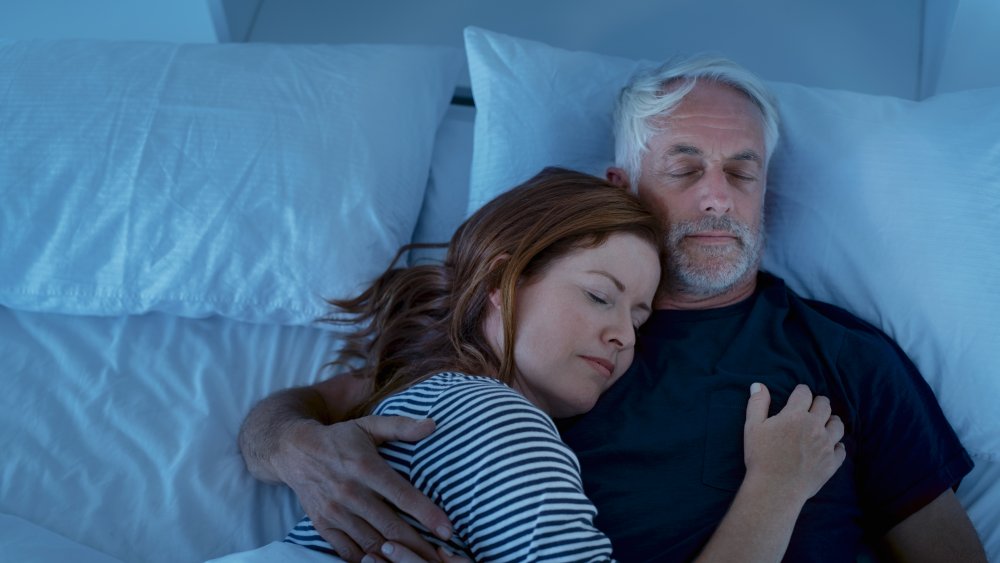Here's How To Keep Yourself From Sleepwalking
While to some of us, sleepwalking is a funny plot point in TV shows and movies or a listed side effect on those long-winded pharmaceutical commercials, to many people it's a very real occurrence that can sometimes be scary or unsettling to experience. If you experience sleepwalking and want to get to the bottom of why it's happening and how to stop it, the first step is to see your doctor. If you have a sleep partner or someone you live with who has witnessed your sleepwalking, it might be a good idea to bring them with you to provide insight to your doctor that you are unaware of because you are not conscious when the incidents are occurring.
At your appointment, your doctor will likely do a few standard things. First is a physical exam to ensure you appear to be in normal good health outside of your sleepwalking symptoms. This will help to rule out other conditions that could mimic sleepwalking like seizures, panic attacks, or other sleep disorders. The second thing they will do is discuss your symptoms and health history with you. This is where having a witness to your sleepwalking could be useful. The doctor may also want you to participate in a sleep study. In which case, you would go to a medical facility overnight, and sensors would be placed on your body to record your brain waves, oxygen levels, breathing, heart rate, and eye and leg movements while you're sleeping (via Mayo Clinic).
How to alleviate symptoms of sleepwalking
While children are more likely than adults to experience sleepwalking (about 20% of kids), it often stops on its own by adolescence, and the reasons behind childhood sleepwalking are often simpler to figure out than in adults. The most common reasons kids sleepwalk are being overtired, going to sleep with a full bladder, fever or illness, stress, a noisy or different sleeping environment, or medications like stimulants or antihistamines. Often, helping a child to get onto a more regular sleep schedule and ensuring they are sleeping in the same place at the same time every night can help (via Amerisleep.com).
Adults can also sleepwalk for these reasons, but reasons for adult sleepwalking are more varied and include disordered breathing like apnea, narcolepsy, restless leg syndrome, gastroesophageal reflux disease, migraines, hyperthyroidism, head injury, stroke, and travel.
While seeing a doctor is a good idea to help determine the cause and treatment, there are some things you can do on your own. First, keep your bedroom quiet, dark, cool, and free of distractions like work. Get onto a regular schedule, sleeping and waking at the same time daily. Don't nap for more than thirty minutes, and try not to nap after 3:00 pm. Also, avoid screens for at least an hour before bed to prevent the blue light from the screen from interfering with your cicadian rhythm. Limit your daily intake of caffeine, alcohol, and nicotine, and if you must have coffee, stop all caffeine by afternoon (via Cleveland Clinic).

